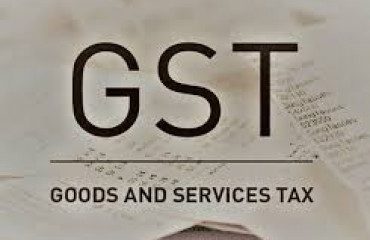
The Sixteenth Finance Commission (16th FC) is likely to be appointed soon. It is a good time to reflect on some challenging issues of fiscal federalism that the 16th FC may have to face.
The Sixteenth Finance Commission (16th FC) is likely to be appointed soon. It is a good time to reflect on some challenging issues of fiscal federalism that the 16th FC may have to face.
First, there is the intersecting domain of the Finance Commission and Goods and Services Tax (GST) Council. The latter's decisions impact the own tax revenue flows of states and, more importantly, the size of the central tax revenue pool which is to be shared among the central and state governments as per the recommendations of Finance Commissions. Clearly, Finance Commission projections of state and central tax revenues, and recommendations based on them will be impacted by decisions taken by the GST Council. This was a major concern during the 15th FC deliberations when GST revenues were highly volatile, the GST administration was yet to stabilize and the GST Network IT platform was still problematic, especially for the preparation of e-way bills. This greatly exacerbated the challenges the 15th FC was facing in making revenue projections because of the unprecedented contraction of the economy in 2020-21 in the wake of the covid pandemic. Fortunately, most of these problems have been sorted out and GST has now emerged as a large and buoyant source of revenue for both the Centre and states.
Recent demands for greater centralization of expenditure assignment is another issue. India has a quasi-federal system. For purposes of legislation, regulation and administration, Schedule 7 of the Constitution assigns 97 subjects to the Union List, including all key subjects dealing with national security, external relations, Union finance, banking, foreign trade and major infrastructure. Another 66 subjects are assigned to the State List and 47 to the Concurrent List. But for concurrent-list subjects, in the event of differences between any state or states and the Union, the latter's view will be decisive. Similarly, if there is any conflict between Union and State legislation, Union laws will prevail. Finally, even for State subjects, the Union government can and does intervene through centrally sponsored schemes in which it incentivizes states to take up the Centre's chosen schemes by financing a part of the cost of these programmes.
The case for further centralization of this quasi-federal system mainly rests on economic considerations. The analytical literature has long established that private benefits are maximized when the jurisdictional assignment of a subject closely corresponds with the spatial benefit spread of public interventions under the subject. However, private benefit maximization has to be set off against possible cost savings from scale economies and lower transaction costs with greater centralization. Further, there is the issue of externalities. If social benefits or losses can spill over across boundaries of a lower-level jurisdiction, it requires assignment of the subject to a higher-level jurisdiction with wider spatial coverage. Finally, equity considerations may require greater centralization to enable the provision of comparable levels of public or merit services for all citizens in a country.
These economic arguments for greater centralization have to be seen in the context of larger political considerations and the distribution of political power across different levels of government. This question became important when non-Congress parties came to power in several states in the late 1960s, demanding greater de-centralisation. It is again a major political issue today, with non-Bharatiya Janata Party governments in power in several states. A change in the assignment of subjects under schedule 7, whether towards greater centralization or greater decentralization, will entail constitutional amendments. How this plays out will depend a great deal on the political profile of the country after the 2024 general elections.
Another issue is the third tier of government. Though the Constitution referred to the importance of local governments and Panchayati Raj institutions, it left it to the states to decide what functions from the state list in the 7th schedule should be further delegated and assigned to local governments. Subsequently, the 73rd and 74th constitutional amendments spelt out detailed lists of subjects that should be assigned, respectively, to Panchayati Raj institutions (PRIs) and urban local bodies (ULBs). But once again, it was left to the state legislatures to decide which functions, funds and functionaries should be assigned to PRIs and ULBs. Not surprisingly, there has been little progress in such assignment in most states, since it would empower elected PRI and ULB representatives at the cost of state legislators. State governments also correctly point out that it is difficult to transfer functions to PRIs and ULBs, which typically have very low capacity. However, the capacity of these institutions cannot be strengthened unless they are provided the resources to build such capacity. It is a 'chicken and egg' problem. To help break this conundrum, the 13th, 14th and 15th FCs have all attempted in different ways to ensure substantial fund flows to PRIs and ULBs.
Vijay Kelkar, chairman of the 13th FC, suggested that consolidated funds should be created for PRIs and ULBs, funded by earmarking a share of the central GST and state GST for them.
So far, except in one or two states, there have been no serious reforms to empower the third tier of government. However, if the electoral success of legislators at the state level comes to depend on empowering the elected representatives in PRIs and ULBs, that could set in motion a whole different political dynamic. Bottom-up dependence could gradually replace the prevailing system of top-down political patronage.
